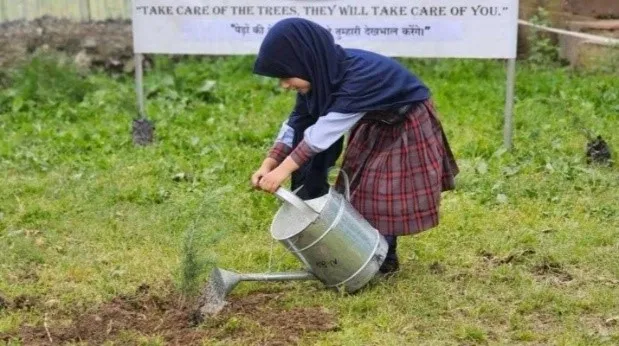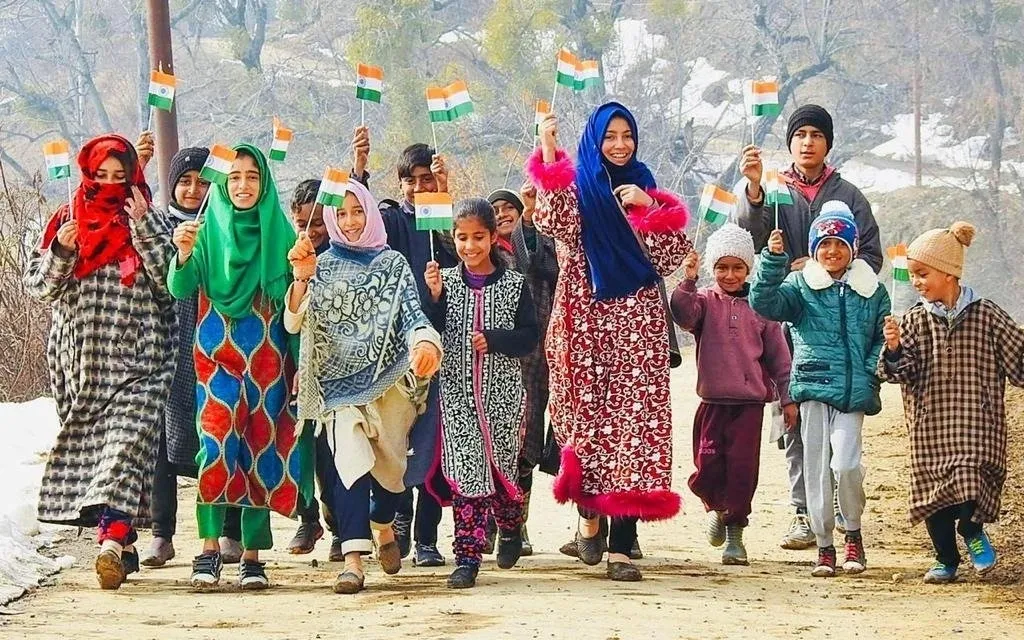“We won’t have a society, if we destroy the environment.” – Margaret Mead
Jammu and Kashmir has always been in news whether it was for terrorism from across LoC in the past, for abrogation of Article 370 or recently for G20 meeting leading to increase in tourism and the ongoing Amarnath Yatra. The Union Territory consists of two distinct regions which are ecologically different from each other and they combine together to form the biodiversity hub of Jammu and Kashmir. This biodiversity hub consists of series of mountains, beautiful lakes, a number of rivers and streams, vast valleys and thick forests. The valley is home to more than three thousand species of flora. Further, 506 species are found in Jammu. Similarly the UT boasts of unique diversity of fauna including, 75 species of mammals, 358 avian species, 14 amphibian species, 68 species of reptiles, 44 species of fishes and about 225 species of insects. The unique location of Jammu and Kashmir and the varied landscapes combined with climatic conditions nurtures the growth of this wide variety of fauna. The region is endowed with rich variety of flora and fauna but last few decades have seen an alarming rate of deforestation and ecological degradation and these crucial issues need urgent attention of political leaders, agencies and locals. According to a report, the biodiversity of Kashmir lists in one of the 26 ecological hotspots where there is alarming rate of deforestation. A lot is said and discussed about importance of flora and fauna in preserving ecology of Jammu and Kashmir but the ground reality states that commercial and political interests have never allowed the alarming rate of increasing deforestation and extinction of species come to the forefront of discussion. Keeping aside flora and fauna and adding to the problem, many other important aspects of ecological conservation are also seldom discussed.
Dal Lake attracts large number of tourists every year and a lot are said about the beauty of this lake. But what remains unheard is that the lake which was around 2547 hectares in 1971 has now reduced by 36% in last 4 decades and now it covers only an area of 1620 hectares. Another important lake of valley is Wular Lake, which has a similar story. Wular lake is the largest fresh water lake of Asia and was declared Wetland of International Importance under Ramsar Convention 1990. The sad state of largest fresh water lake of Asia is such that from 1911 its water holding capacity has now reduced by 50%. Even after being blessed with a number of lakes, rivers and streams; this reduction in area and water holding capacity is the root cause of the problem of water shortage which the local residents are now realising.
Another pressing issue which is significantly affecting the ecological balance of the region is conversion of farmlands into land used for non-agricultural purpose. This conversion has resulted into increase in food grain deficit. Failure of local government and administration to abide by the guidelines and directions of National Green Tribunal (NGT) has further worsened the situation. There is a need to sensitize the locals that an imbalance in ecology will severely affect them and it is high time for some action.
Rivers and streams not only add beauty to valley but are important for maintaining ecological balance in Jammu and Kashmir. There are a number of important rivers and streams in valley, but out of these; three rivers flow into Pakistan and are important source of water for our neighboring nation. These are Jhelum, Sind and Chenab; and under Indus Water Treaty, India can use a certain percentage of water from these rivers. According to the treaty, hydro-electricity can be generated from these three rivers only by ‘Run of the River’ power projects i.e. electricity can be generated by only running water of these rivers and not by storing them in large reservoirs. Thus, shrinking of streams and rivers is expected to severely affect the power generation capacity of Jammu and Kashmir. Further, any form of ecological imbalance, which affects these rivers will affect Pakistan and thus can be a potential cause of geopolitical rift between the two nations.
It is high time that the locals of Jammu and Kashmir, the administration and whole of India understands that ecological stability in this region is important for the whole sub-continent. Any ecological imbalance will severely affect lakhs of people without distinguishing between religion, ethnicity or state. Effective administrative redressal along with local support is the need of the hour to tackle the alarming rate of ecological imbalance that is taking place in Jammu and Kashmir. A lot of efforts are required to preserve the ecological balance of the crown of our nation, and every single tree planted by some little hands will go a long way for preserving the ecological balance and thereby in preserving the flora and fauna of the region.




